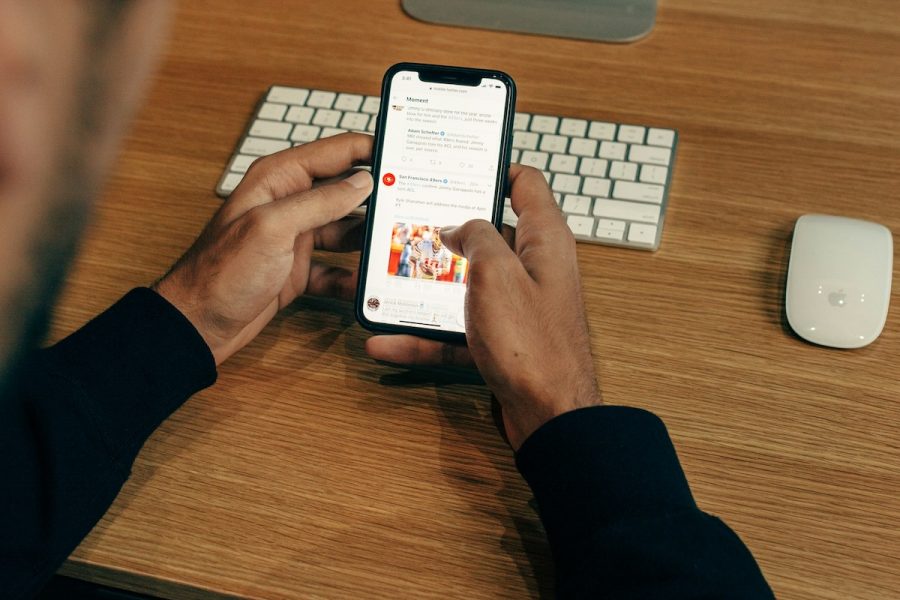I had the opportunity to talk Monday with Danny Wong, one of the co-founders of the startup Blank Label which allows customers to create custom men’s dress shirts. Users can pick fabrics, collar styles, cuff styles, size and fit options, as well as embroider custom monograms. The company is the brainchild of Wong’s partner, Fan Bi, who developed the idea during an exchange program between the Boston area’s Babson College (a school we’ve mentioned before for it’s entrepreneurship programs) and his school in his home of Australia.

Bi and Wong initially hired locally, bringing a Boston-based graphic designer on board, but eventually they were forced to look beyond the east coast for a programmer. After hiring their lead developer in Orange County, California, Bi’s exchange program ended, forcing him back to Australia, and splitting the Blank Label team across three distant locations, but the fledgling company has still managed to grow. Bi now lives in Shanghai where he can run the company’s supply chain with their manufacturer, while the rest of the team works virtually in California and Massachusetts.
Wong and Blank Label are an excellent example for startups in smaller communities that need to hire employees outside of their location. Here are some excerpts from my interview with Wong on the pros and cons of working with a split team in a startup as well as some insights into how they’ve managed to get off the ground and continue to grow.
What lead Blank Label to become a split team?
We couldn’t find someone local. We dug really deep, we tried to leverage our secondary network. All three of us were in the Boston, Massachusetts area at the time, and we were trying to find this fourth partner who could do programming and who could make something really amazing for us without us having to outsource. We’ve had a tremendous amount of terrible stories with outsourcing, we even had an article written about us on Forbes.com about how we decided to bring someone onboard as opposed to outsourcing because we had so many issues with outsourcing. But the fact of the matter was, on the east coast, we couldn’t find anyone that was good. Theres definitely an abundance of software talent on the west coast and getting an awesome, passionate technical co-founder even at a distance who believed in the vision, who had thought about the idea space a few years previous was a bigger advantage than the disadvantage of not having him local.
So you were looking for someone who could program but also had the entrepreneurial mindset?
Yes.
And that was hard to find on the east coast? Because I’m sure there’s plenty of programmers coming out of the colleges out in Boston.
Some of them have the entrepreneurial spirit as well, but part of the problem was that a lot of them didn’t believe in us because we were an unproven concept. We had an idea, and our team didn’t have the best credentials, but we had an idea and we were incredibly motivated. Naturally, people will be skeptical.
That’s interesting because that’s kind of how ventural capital goes too, east coast to west coast. You won’t get as much funding on the east coast for something that’s not as proven a model as you would in Silicon Valley where they’re more likely to invest in something more risky.
Yeah, well there’s also a cultural difference. We’re more conservative on the east coast, just as a culture. On the west coast they’re incredibly liberal, they’re not averse to risk taking. They’re not averse to change. That’s why you see all of these disruptive startups coming out of the west coast. There are some people pushing it on the east coast, but certainly not as many in proportion or in volume compared to the west coast.
So you eventually found your fourth partner?
So we found a co-founder, we found him through the web…We’ve just had an interesting relationship since. A few more details about the team dynamic: we’ve never met Zeeshan.
And he’s the programmer from California?
Yeah he’s out there. Alec, our graphic designer, and I are now in Boston… Towards the end of 2009 Fan was finishing his exchange program at Babson, I attend Bentley, Alec graduated in June from Roger Williams. Alec and I barely see each other, but we go out now and then on the weekends. Fan’s visa soon expired because he finished his exchange program at Babson in December… Immediately after new years he flew out to Australia, spent some time with his family, and now he’s moved to Shanghai for the business…We decided to move Fan out there because it was the best solution for the company. Now he’s working with our supplier directly, and we have a new supplier, we have better quality control, we can source more fabrics, we have transparency with the supplier, we know more about our raw costs, the time it takes to produce a product, and then we’ve figured out better shipping options to get the product to the consumer faster.
So how do you collaborate over such long distances?
We use web-based document sharing, we use Dropbox and Google Docs. We use video conferencing, we use ooVoo instead of Skype because ooVoo allows us to do multiple-person video conferencing. We also use a couple project management tools, Acunote specifically to set goals and sprints for our web-based projects.
What’s it like to set up a manufacturing partnership with a company in China? That’s got to be a daunting thing to look at.
Yeah. When Fan was living in Australia he used to go over to Shanghai every summer because that’s where his [extended] family was. He would get his products custom made and that’s how he came up with this idea…He decided to go snooping around and he found a manufacturer and they had direct contact at the beginning…He set up the supply chain. We were working through an agency which put us through to a manufacturer so that was a little sloppy. The manufacturer itself was talking directly with us so we couldn’t tell them exactly what we wanted. There were too many steps in the process because we would talk to the agency who would talk to the manufacturer, and the agency was pretty much a middle man, and the problem there was our costs were higher, and sometimes the message gets mixed up. It was complicated, it definitely was, and there was also a time delay because we have to talk to the middle-man and the middle-man has to find time to talk to the manufacturers.
Not to mention the time-zone differences.
Yeah… Our original manufacturer, their main business was suits, and they just happened to do shirts too, and we pushed them to do things a little different, and they said “Oh, what are you doing? No one ever does this?…You’re putting to much pressure on us, you’re asking for a quick turn-around, we don’t have time for this…For us to make one of your shirts, we could have made 4 other shirts that were mass produced.” So our interests weren’t really aligned, and they’re expertise weren’t there. Our tailors now work specifically with creating dress shirts every day, so we just told them to do things a little different and they’ve done very well.
So being bootstrapped, was that one of the things that led you to create this split-team?
Yeah, if we had investors I’m sure they would have pushed us to be near each other. And that’s the problem with seeking investment right now, there’s no way we could relocate Zee because he has a competitive salary at his day job right now.
I would think that if you did relocate, I would think San Francisco would be a good place not only because its Silicon Valley and investors are there, but its also a bridge city from China and Japan where manufacturers are.
Right, that’s a good point, and we certainly would not be averse to moving over to California. The only problem, for one, there’s Fan’s visa issue. Alec and I are free to move, I’d be happy to take some time off from school if that’s needed. There would be no problem for us to move, and we’d be more than happy to. One potential problem might be that we’re comfortable with our network here [in Boston]. Fan’s talked about how he’d be excited to move out to the west coast, it’s where startups thrive.
It seems like you’ve got a pretty good setup going right now with the manufacturers in China.
Yeah and we need him there for a couple more months at least. It’s undetermined how long he’s gonna be there, but fortunately the cost of living is low. It’s not ideal for him to move back here.
Are you looking to get funding, or are you trying to bootstrap as long as you can?
That’s a good question. I would say that we’re going to be bootstrapping it for a while. We’re not actively seeking funding, and we have no real intentions of seeking funding anytime soon. Perhaps a year from now, but I certainly would say any earlier than six months from now.
Has anyone approached you about funding?
We spoke to TechStars because Bill Warner even ordered one of our shirts. He was interested in us applying, it wasn’t an offer but he encouraged us to apply, but then the program would have been this year and we’re a split team so it just wouldn’t work out.
I would think that you guys might be perfect for an incubator situation but you guys are so split up that it makes it a lot harder.
Yeah we’re too far split apart [for an incubator]. We were looking at, “How are we going to deal with Zee, how can we negotiate to allow him to be there?” Now we’re going to be split between Boston, Orange County and Shanghai for quite a while.
Do you think that not being able to work face-to-face has been a hurdle you’ve had to overcome, or is it not that big of a deal?
I feel connected to the team because I get to see them twice a week because we’re video conferencing. It adds a little more reality to a situation. We used to do phone conferences, and for one I hate holding my phone to my face for that long and two, you’re looking at other things while you’re talking. With video conferencing you get to see your partners’ gesticulations, facial expressions, it seems more real…We use Google Chat or Skype for IM or small calls.
Is there anything else you want to add about the split team experience?
For some teams it will be important to have a split team for business and split operation puposes. Fan is in Shanghai managing our supply chain, I’m here building our Boston network, Zeeshan’s out in Orange County…with the world’s top developers, learning more, exchanging tips and notes. Networking and business purposes, it can be very beneficial for those reasons.
If you can have it any way you wanted, which would you choose? Is the price of being split up worth the advantage of being able to network in these different cities, and tap these different talent pools?
Yes! I full agree with that statement. Going back to your first question, I honestly wish I was in Europe right now.
Because fashion is huge out there?
Yes, they have so much purchasing power compared to us. If we were to charge our prices over there, people would swallow up our product. For a product with our value proposition, I certainly think that we could make a lot of money there. We are launching international shipping in a week or so, but I would love to be working over there. It would be great to just get on the map and be disruptive globally.
Is there a situation for startups that you would recommend they split up their team? Especially since you guys are from Boston which is one of the bigger east coast startup cultures but it’s not the largest in the states, so you are forced to look around in other cities for talent. Would you suggest that startups in a similar situation try to do that too?
Yeah I certainly would encourage startups to look for resources elsewhere. The status quo was that you had to find someone local that you can sit and have coffee with every day. If you were too poor to afford an office, which most people are, you can sit in Startbucks and get free refills everyday. But things are changing, and luckily with the evolution of technology you can interact virtually with a team and you can have a wonderful team dynamic this way. I would encourage people to look near and far to find the people that have the skills necessary for their business to explode…There’s someone out there who can add value to your team and that is more than happy to jump on.










